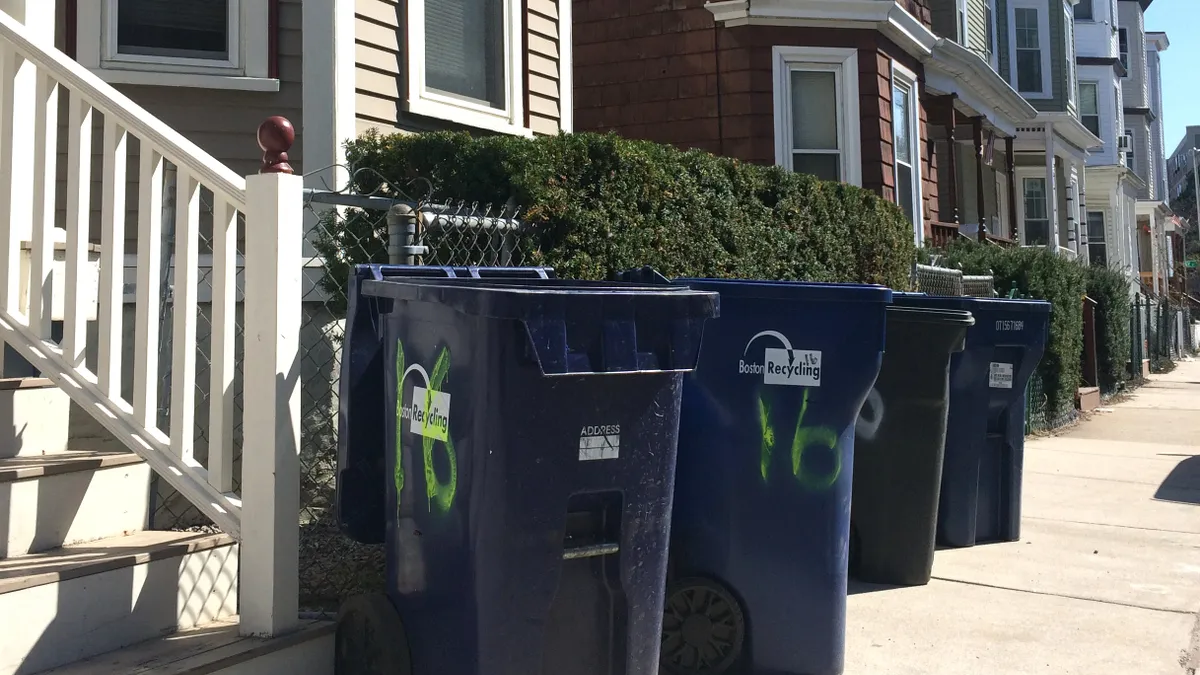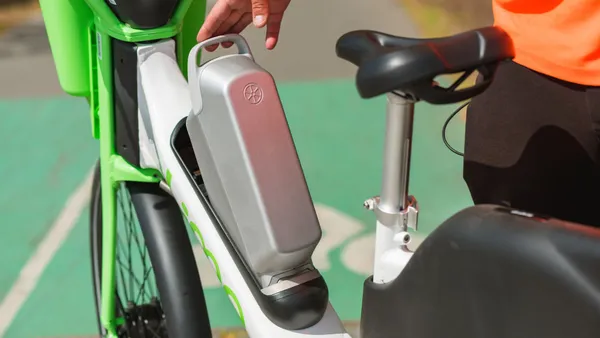Dive Brief:
- Boston recently finalized a $148,000 consulting contract to help initiate a "zero waste" planning process after years of discussion. Led by Massachusetts-based Perlmutter Associates, the consulting team also includes the Center for EcoTechnology, Zero Waste Associates, Kessler Consulting, Sound Resource Management, Eureka Recycling, Gainer and Associates, and RRS.
- As directed by the city, this team will review all current operations; identify cost savings and efficiency opportunities for reduction, reuse and recycling; and identify necessary legal, regulatory or market changes to make this happen.
- This work will be done in concert with a newly developed Zero Waste Advisory Committee — co-chaired by the city's chief of streets and chief of environment, energy and open space Austin Blackmon — that will include two subcommittees on the residential and commercial, industrial and institutional sectors. Once committee membership is finalized, the planning process is expected to take about nine months. Recommendations will then be delivered to the mayor for further action.
Dive Insight:
This marks a tangible step forward in Boston's multi-year "zero waste" conversation. After Mayor Marty Walsh took office in 2014, the Boston Recycling Coalition (now Zero Waste Boston) released a report calling for short-term targets leading to "zero waste" by 2040. The hope was to influence decisions around 2014 recycling and disposal contracts. That didn't happen, but the city pledged to launch a "zero waste" planning process in an early 2015 update to its Greenovate climate action plan. In 2016, with grant funding from the Massachusetts Department of Environmental Protection (DEP), the city and Zero Waste Boston teamed up for multiple "zero waste" summits that brought in municipal officials from around the country. Excitement about progress and local job creation potential was high at the time, though momentum stalled until Boston issued a request for proposals in May of this year.
Now, city officials and local advocates are energized once more by the prospect of taking the most comprehensive look at Boston's waste policies in years. The city's residential diversion rate is estimated to be around 21%. Not enough data is known about other sectors. With all of the city's collection, recycling and disposal contracts up for renewal in 2019, that still leaves time for potential changes. Currently, residential material is collected by area service providers Sunrise Scavenger and Capitol Waste Services. Residential recyclables go to a local Casella MRF. Refuse goes to various waste-to-energy facilities operated by Covanta and Wheelabrator. The fact that the DEP is in the process of developing a new 2020 Solid Waste Master Plan, and dozens of waste-related bills were just introduced in the state legislature, creates an even more dynamic climate for this discussion.
All involved share similar goals, but have different opinions on how to get there and how long that may take. Boston could follow the lead of New York and others with one big "zero waste" goal for the future. Or it could take the more measured approach of Philadelphia and develop benchmarks along the way. The presence of a consulting team that brings deep experience from cities around the country, and includes some of the foremost arbiters of the national "zero waste" conversation, is expected to help organize this complex process. Preliminary work has already begun and multiple events are happening in the city this week. Boston will be running a Greenovate "zero waste" introductory training for residents on Nov. 8 and is also hosting the Greenbuild International Conference and Expo, which will have a variety of "zero waste" sessions.














